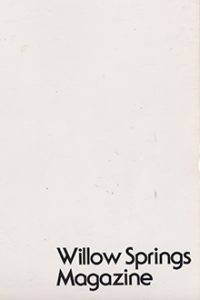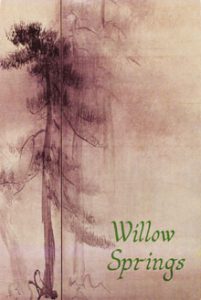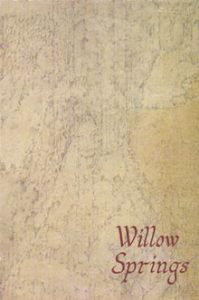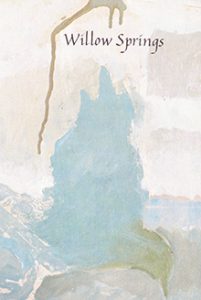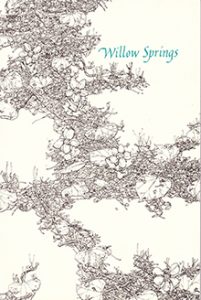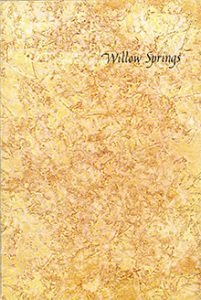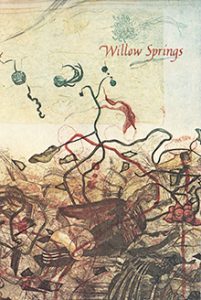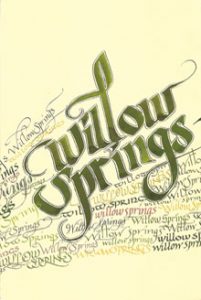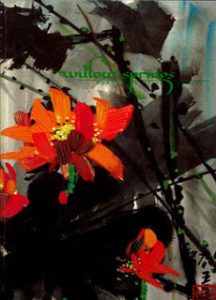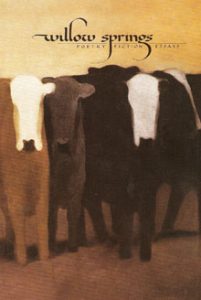
About Hugh Martin
Hugh Martin is a graduate of Muskingum University and now attends the MFA program at Arizona State. He served six years in the Army National Guard as an M1A1 Tanker and spent 11 months in Iraq. His work has appeared in CONSEQUENCE Magazine, Mid-American Review, Nashville Review, and is forthcoming in Gargoyle, Third Coast, and the American Poetry Review. His chapbook, So, How Was the War? (Kent State UP, 2010) was published by the Wick Poetry Center. His work was recently selected as part of the 7th Avenue Streetscape Series in downtown Phoenix, Arizona. In the summer of 2011, he will teach introductory creative writing classes at the National University of Singapore. He is at work on a manuscript of poems with the tentative title, The Burn Pit.
A Profile of the Author
Notes on Two War Poems
Like most of my work, these poems are triggered from my experiences in Iraq. “Friday Night, FOB Cobra” is a poem that tries to capture, using small and sparse details, the lives of the soldiers inside the FOB (forward operating base). Some of my goals when writing involve exploring those aspects of war outside of actual fighting, attacks—all those things that come to mind when thinking of typical stories of war. My goal was to make each section vivid and strong enough to give the reader a clear idea of what each soldier is like as a human being, and possibly what issues cross the soldiers’ minds regarding their own lives, outside of and away from the war. I hope the reader might better understand each soldier, and whatever flaws they may have. The poem began much longer, and over a few months and work-shopping, I trimmed it down. One thing I tried to do was give each soldier a voice, while juxtaposing some kind of action that helped exhibit the mundane, boring, redundant and sometimes disgusting routines of life on a base while at war. One thing I’ve found through my experiences in the military is that no matter the situation in war, no matter how dangerous, dull, horrifying, tiring, etc., people talk about their lives. A lot of my war experience was just that: arguing about the best American mafia-film in the street while EOD tried to blow up an IED; or listening to a soldier give another soldier relationship advice while we searched someone’s home for weapons. Besides the armor, the weapons, the training, I think telling stories, listening, talking to each other—that’s one of the ways soldiers survive. You could say this about all of humanity I’m sure, but I think it’s even more true with soldiers at war.
In “Observation Post,” I wanted to capture the death of an interpreter through the eyes of two men on guard duty (one of the most boring, but necessary tasks for any soldier in any war). The poem is based loosely on the death of one of our best interpreters, who lived in town and whose sons worked at our base. We’d just been out with him the day before searching random vehicles on the roads and the next day leaving the FOB, he basically drove down the road about a mile, and was shot through his windshield, probably by men who obviously didn’t like that he worked with the U.S. military. This was devastating for us and many of the locals, but in the overall bigger picture, interpreters were and are threatened and killed all of the time in Iraq. It’s obviously an extremely dangerous and risky job. That day they had the funeral for him and hundreds of people crowded the streets downtown and hoisted his wooden coffin as they walked to the cemetery. Members of the Kurdish army, the border patrol and other Iraqi security forces were swarming all over town, gathering information on suspects. I’d never seen so many people determined and thirsty for vengeance. I don’t remember if they ever found the shooters.
The poem itself underwent at least ten heavy revisions. When I begin any poem, I place my initial ideas, thoughts, and all notes on page 1 of a Word document and just work my way down. I’ll go to the next page when I begin the first draft, and as I make changes, no matter how major or minor, I’ll move the new version to the next page; I like this process because it allows me to flip back and see where the poem started and what was left out and added, etc. With this poem, I toyed a lot with form, usually playing with placement of the stanzas. At one point, the stanzas were pushed into blocks all the way to the left side of the page; I also had the poem in ten two-line stanzas; I had another version with asterisks between stanzas.
Notes on Reading
I’ve always tried to be a pretty eclectic reader. Being in grad school, I usually balance getting my work done and then reading what I want when I can. Right now, I’m in the middle of Doug Anderson’s The Moon Reflected Fire; Lorrie Goldensohn’s Dismantling Glory; W.S. Merwin’s The Carrier of Ladders; and Junot Diaz’s The Brief Wondrous Life of Oscar Wao. I have a long list of books (both prose and poetry) that deal with war either directly or indirectly and I am constantly chipping away at it. Over the past year or so, Bruce Weigl’s work has probably been the most inspiring and influential. I’d barely read him before grad school, but now I’ve read and reread all of his work. The way he approaches Vietnam using mostly plain-spoken language and clear, precise, but fresh imagery, is something I admire. He makes it look easy. His poems bring you in quickly and he’s very skilled with using line breaks and an internal rhythm to keep the reader moving. I also greatly admire many of his poems that deal with the speaker’s post-war life. “Song of Napalm” is one of my favorite poems dealing with war and I think Weigl covers a lot of ground in the poem; it serves as another attempt to try to understand a terrible event. The end of that poem strongly resonates with me because of its sheer realism and the way the speaker tries and wants to deny what he’s seen, but no matter what, cannot. The poem is not only about the speaker’s denial, but everyone’s denial of all the horrors of war that have taken place or are taking place right now. The speaker fights with the idea of this girl dying and the fantasy of her having wings and escaping; by the end though, the reality of it is acknowledged: she dies, and no one, and no thing, can or should deny it. I think it’s about taking responsibility, acknowledging suffering, and ultimately trying to learn from it so it doesn’t happen again.
When I returned from Iraq someone told me to read Yusef Komunyakaa and honestly, I don’t think my senses were ready for his work at the time. Revisiting Dien Cai Dau a couple years ago though, I found the work incredible. His lyrical poems are highly palpable and many of his images are stunning; they have literally stopped me on the page. “Thanks,” his poem where the speaker literally expresses gratitude to different aspects of nature—tree trunks, butterflies, flowers—that helped him avoid a bullet, mine, or tripwire, is still a poem that I can’t fully digest—it’s just too good, even the concept of it I find unique and beautiful. Komunyakaa is one of those poets that I will be revisiting throughout the years, finding more and more layers and nuances that I couldn’t before.
It’s hard to list “underrated” books over the past five years, so I’ll just list three that I enjoy: David Baker’s Midwest Eclogue; Brian Turner’s Here, Bullet; and James Harms’ The Joy Addict (actually that one came out pre-2000, I think, but I read it in 2005; it still remains a book I go back to).
